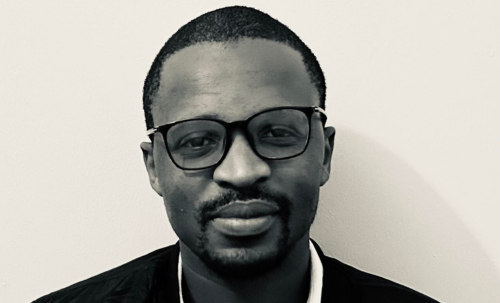Benedict Thabo Nkosi has embarked on a journey of perseverance, inspiration and sheer determination. Benedict is studying his Postgraduate Diploma in Accounting at Milpark Education, but the route he's taken to get to this point has been arduous and far from smooth-sailing.
A product of Lydenburg in Mpumalanga, Benedict was a small-town boy before making his way to Johannesburg after he matriculated in 2012. “In 2013, I took a gap year and in 2014 is when I enrolled in my Diploma in Accountancy at the University of Johannesburg,” Benedict says.
Benedict has had a love for accounting since he was a teenager after realising how much he enjoyed it in grade 8. “From there I knew this is the route I want to follow, not knowing that this route is going to be [a difficult one]. I had a plan to complete my Diploma in three years and from there, I planned to do my BCom in Accounting so I could bridge into my Honours. Things didn’t go as planned. [Although] I finished my Diploma, my first-choice university for the BCom told me there was no space so I went to another tertiary institution in 2017.”
Due to financial constraints in 2017, Benedict unfortunately couldn’t complete his BCom in Accounting and had to deregister. “I always thought I would go back but life just happened and it was harder to go back. There was always something standing in the way. I started working in 2018 at retail stores [such as Makro and Game] and from there I got into property management.”
Benedict’s story is a classic South African tale of how many students take far longer to complete their qualifications due to unforeseen circumstances like lack of funds. Determined not to allow this to deter him from reaching his goal, Benedict got one step closer on his journey by studying his Advanced Diploma in Accounting in 2021.
Finally, he enrolled for his PGDA at Milpark Education this year after having completed the Bridging Short Programme in Advanced Accounting in 2022. Benedict truly had to persevere his way through the bridging course to end up passing it under what felt like impossible circumstances.
“You need to pass four modules overall. I [had planned to complete] two in the first semester and then the other two in the second semester on a half workload basis. But unfortunately, I failed one of the modules in the first semester. So, in order for me to get into the PGDA course in the following year, I needed to complete three modules in the second semester, a huge challenge as I had done two in the first semester and failed one. That was very scary because I didn’t know how I was going to cope with passing all three. I was advised to go back to the course content and see where I went wrong and where I need to improve. To my surprise, I actually passed all three modules in one semester,” says Benedict, attesting that this improvement was testament to the guidance of the lecturers and staff. “I think doing three modules instead of two in the second semester really helped prepare me even more for the PGDA with regards to time management and how to interact with more than two modules before PGDA commenced.”
This was a major obstacle that Benedict overcame before prepping for his PGDA course, which he discovered took the same amount of determination as his course the year prior.
“The PGDA course is very hard but I feel like Milpark made it easier for us to cope with how hard it is. The way Milpark facilitates everything, how their lessons are planned, how feedback is given [is amazing]. [The lecturers] start from the basics and they don’t use what is called ‘assumed knowledge’. The lessons take you from where you are to where you need to be,” Benedict says.
For some modules, it had been years since Benedict had touched anything on the subject and at first, this was intimidating. It seemed like the students whom had gone straight into the PGDA after completing their undergrad degrees had more of an upper hand, as the knowledge was freshly stowed in their minds. “When I started with one of the modules, it had been about four years since I’d done that subject and it was one of those subjects that was always giving me anxiety. When I started with it, they made sure I was comfortable with it and now it’s one of my favourite modules; it doesn’t really scare me anymore.”
Benedict says Milpark is an especially unique way of approaching learning and supporting students. “Milpark has a Student [Support and Development] Advisor, Terri [Ryklief]. She has one-on-one drop-in sessions where you can discuss topics with her that have nothing to do with the course – your mental health, how you’re feeling, your personal life and your struggles. I think the fact that they’ve integrated that into the course is amazing. Terri has been part of my journey all along.”
On the subject of marks, Benedict says he has struggled with maintaining his. “The volume of work in a PGDA is a lot denser than that of an undergrad. The tests are also harder. It forces you to look into yourself and figure out what it is that’s holding you back, if anything is distracting you, how you can improve your study skills, how disciplined and engaged you are when in lessons. There’s nothing new in the exams, it’s everything that they’ve already taught you.”
Benedict has taken the mindset of self-improvement and personal responsibility in the final set of examinations and as he awaits his results, he hopes that this has made all the difference.
This quote by American author Napoleon Hill perfectly sums up Benedict’s journey: “We see men who have accumulated great fortunes, but we often recognise only their triumph, overlooking the temporary defeats which they had to surmount before ‘arriving’.”

